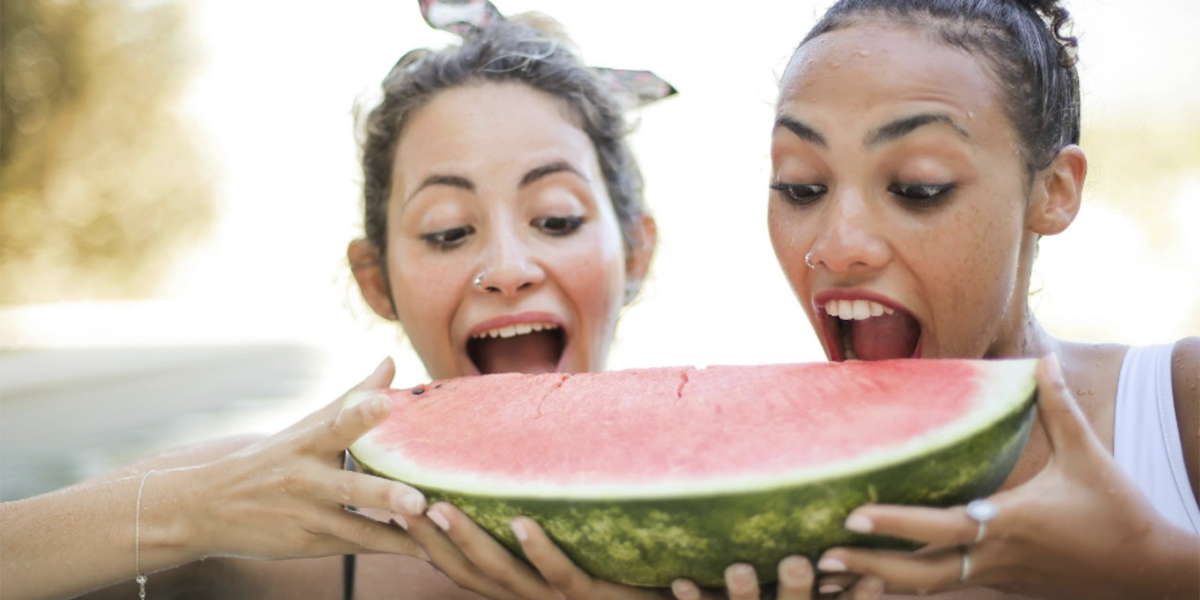
Can Plant-Based Foods Really Enhance Your Skin Health and UV Protection?
Written by Emily Lopez
In our quest for healthy, radiant skin, we often turn to skincare products and treatments, but we frequently overlook one of the most potent tools available: our diet. What we eat plays a significant role not only in our skin's appearance but also in its ability to withstand environmental stressors, such as UV radiation. Plant-based foods offer a wealth of nutrients that nourish skin from within and enhance natural defenses against harmful sun rays.
The Foundation:
Nutrition's Role in Skin Health. The skin serves as our body's largest organ and primary barrier against external threats, including UV radiation. Proper nutrition is crucial for maintaining its structure, function, and overall health. Nutrients from plant-based foods, including vitamins, minerals, antioxidants, and phytochemicals, play vital roles in supporting skin integrity and resilience.

Key Nutrients for Skin Protection
Antioxidants and Phytochemicals: Antioxidants neutralize free radicals, those unstable molecules that damage cells and contribute to aging and UV-induced skin damage. Plant-based foods are rich in antioxidants like vitamins C and E, beta-carotene, flavonoids, and polyphenols. These compounds protect skin cells from oxidative stress and support collagen production, which is essential for maintaining skin elasticity and firmness.
Essential Fatty Acids: Omega-3 and omega-6 fatty acids are vital for healthy skin function. They maintain the skin's lipid barrier, which regulates moisture and protects against environmental damage. Find these in flaxseeds, walnuts, chia seeds, and fatty fish like salmon.
Vitamins and Minerals: These nutrients are critical for skin repair and regeneration. Vitamin C, abundant in citrus fruits, berries, and leafy greens, promotes collagen synthesis and helps repair UV damage. Zinc, found in nuts, seeds, and legumes, supports cell renewal and has anti-inflammatory properties that aid in treating sunburn and irritation.
Powerhouse Plant Foods for UV Defense
While sunscreen remains essential, incorporating specific plant-based foods can complement protection from within by enhancing skin resilience and reducing oxidative damage from UV exposure.
Green Leafy Vegetables: Spinach, kale, and Swiss chard are rich in vitamins C and E, plus beta-carotene. These nutrients neutralize UV-generated free radicals and support skin hydration and elasticity.
Berries: Strawberries, blueberries, and raspberries pack antioxidants and phytochemicals that combat oxidative stress and inflammation. They contain ellagic acid, which protects against UV damage and promotes collagen synthesis.
Tomatoes: A potent lycopene source, tomatoes provide powerful antioxidant properties that defend against UV damage, reduce inflammation, and improve skin texture. Cooking tomatoes increases lycopene bioavailability.
Nuts and Seeds: Almonds, sunflower seeds, and flaxseeds are rich in vitamin E and essential fatty acids, maintaining skin hydration and protecting against UV oxidative damage. They also contain selenium, which supports skin elasticity and may potentially reduce the risk of sunburn.

Green Tea: Renowned for its polyphenols, particularly EGCG, green tea offers potent antioxidant and anti-inflammatory properties. Regular consumption may help protect against UV damage and reduce skin cancer risk.
Incorporating more plant-based foods doesn't have to be complicated:
- Start with Breakfast: Add berries or create green smoothies with spinach and kale
- Snack Smart: Choose nuts and seeds like almonds or sunflower seeds
- Color Your Plate: Aim for colorful fruits and vegetables at each meal to maximize antioxidants
- Sip Green Tea: Replace afternoon coffee with green tea for skin-protective benefits.
- Experiment: Try plant-based recipes featuring avocado, sweet potatoes, and legumes.
The Bottom Line: While sunscreen remains crucial for UV protection, the benefits of plant-based foods in supporting skin health shouldn't be overlooked. By incorporating a variety of fruits, vegetables, nuts, seeds, and teas into your diet, you nourish your skin from within, promoting resilience, elasticity, and radiance. Embrace the power of plant-based nutrition to look and feel good in your skin, knowing you're supporting its natural defenses against environmental elements.


